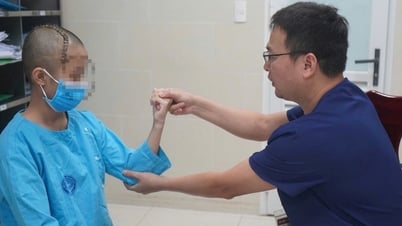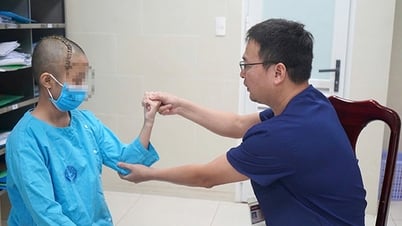Vitamin D deficiency can affect health silently and for many people, symptoms are often not noticeable at first, until symptoms appear that affect daily life.
Vitamin D can help maintain many important functions of the body such as promoting the absorption of calcium and phosphorus, helping to form strong bones and teeth, and fighting infection and disease. Vitamin D deficiency can lead to rickets in children and osteoporosis in adults.
Although the recommended daily intake of vitamin D is 600 IU for adults and 800 IU for people over 70, maintaining this ideal level is not always easy. Even exposure to sunlight and eating foods rich in vitamin D are sometimes not enough, requiring supplementation with medication under the guidance of a healthcare professional.

Vitamin D is fat-soluble, so it is best absorbed when there is fat in the diet.
1. Warning signs that your body does not have enough vitamin D
Some warning signs of vitamin D deficiency that are easily overlooked:
- Bone and joint pain: If vitamin D levels are low, the body cannot fully absorb calcium and phosphorus, which can increase the risk of bone pain, fractures, muscle pain and muscle weakness. When the deficiency is severe, it can increase the risk of falls, especially for older adults.
- Muscle weakness and spasms: Vitamin D may play an important role in normal muscle function, and muscle weakness or pain can be a warning sign of vitamin D deficiency, which increases the risk of falls.
Older adults, who are prone to vitamin D deficiency, especially those who do not get much outdoor time, may benefit from vitamin D supplementation.
- Dental problems: Vitamin D deficiency is associated with tooth decay and poor oral health. Insufficient vitamin D can lead to a range of dental diseases and is associated with a higher risk of dental defects such as tooth decay, periodontitis and dental treatment failure.
- Hair loss: Vitamin D deficiency is linked to keratinocytes, a type of cell important for hair growth. Low vitamin D levels can cause hair loss.
A study published in Cureus found that low serum vitamin D levels may lead to androgenetic alopecia, a common type of hair loss also known as male pattern baldness and female pattern hair loss. Alopecia areata has also been linked to deficiency.
- Fatigue: Unexplained fatigue that does not improve with adequate rest can also be caused by vitamin D deficiency. Not having enough vitamin D can lead to mood swings, fatigue, and poor mental health.
- Loss of appetite (anorexia): Anorexia is associated with vitamin D deficiency. This is because vitamin D is involved in regulating leptin, the hormone that regulates appetite.
2. How to overcome vitamin D deficiency
- Exposure to sunlight: Spending time in sunlight, especially in the morning, can help the body produce this essential vitamin well.
- Increase fish intake: Some types of fish such as fatty fish including salmon, mackerel, sardines and seafood are rich in vitamin D.
- Egg yolks: Egg yolks are a natural source of vitamin D. The amount of vitamin D in eggs can vary depending on the hen's exposure to sunlight and diet. Accordingly, free-range eggs tend to have higher vitamin D content.
Adding egg yolks to your meals is a simple way to increase your vitamin D intake, especially when combined with other vitamin D-rich foods for a comprehensive approach to meeting your body's daily needs.
- Add fortified foods : Many foods are fortified with vitamin D, including milk, breakfast cereals, orange juice, yogurt, soy beverages and tofu...
Be careful not to overdose on supplements, as this can cause side effects. Too much vitamin D can cause nausea, vomiting, confusion, and kidney stones. Vitamin D supplements can interact with certain medications and should not be started without a doctor's prescription. At recommended doses, vitamin D supplements are generally safe.
Dr. Hoai Thu
Source: https://giadinh.suckhoedoisong.vn/6-dau-hieu-canh-bao-co-the-dang-thieu-vitamin-d-17224123018283773.htm
































































































Comment (0)